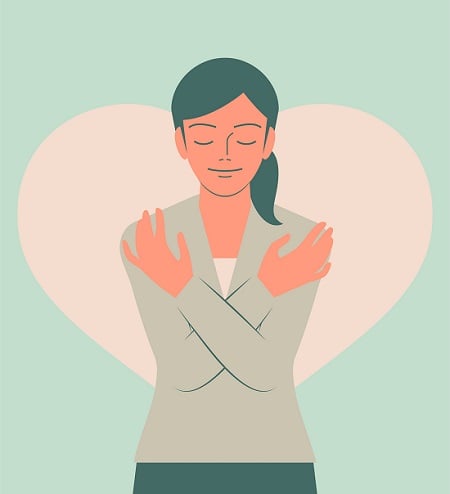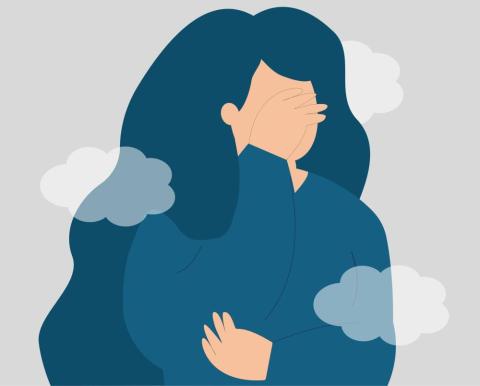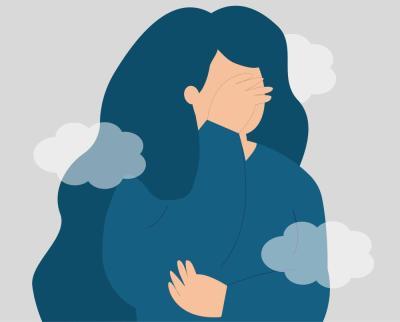Gratitude - A Mental Health Game Changer
Gratitude - A Mental Health Game Changer

Gratitude can be a game changer. It helps train your brain to notice and appreciate the little things in life and, in doing so, shifts your life experience tremendously. Gratitude can increase your happiness and wellbeing, life satisfaction, even overall health while decreasing the stuff we all want less of like anxiety, depression, and anger. It can be a powerful practice to cultivate, especially if you struggle with anxiety or depression.
How Gratitude Relates to Anxiety and Depression
While anxiety and depressive disorders come in different forms and flavors, they share some commonalities. All are associated with underlying negative thinking patterns. These patterns include both what we think and how we think. In other words, both the content and the process of thinking impact anxiety and depression.
The content of anxious and depressive thinking is often negative in nature. Common forms of negative thinking include: overly focusing on negative aspects or problem areas (called the negativity bias), discounting the positives (“yeah but”-ing away any positive aspect or occurrence), and catastrophizing or jumping to the worst case scenario.
The process of anxious and depressive thinking is characterized by mental time travel – dwelling on the past or worrying about the future. This mental time travel, known as rumination, pulls us out of the present moment and can add to feelings of depression and anxiety. In fact, psychological research shows that the more present we are, the happier we tend to be, even when the present moment isn’t pleasant or enjoyable. The bottom line is that rumination is a sneaky mental habit that zaps us of joy.
This is where gratitude can be particularly helpful.
Gratitude as a Competing Response
In the world of habits, there’s a treatment approach called Habit Reversal Training. A key component of HRT is the use of a competing response, which is an action that is incompatible with the habit you are trying to break. For example, if you’re trying to break a nail biting habit, you might clasp your hands as a competing response when you feel the urge to bite. It’s really difficult to claps your hands AND bite your nails at the same time. Consistently using a competing response trains your body to replace the undesired habit with the new one.
Rumination, worry, complaining, and negativity are mental habits, and ones with far worse consequences than nail biting. These mental habits involve stewing on negative thoughts, indulging them in a repeating and amplifying loop with the effect of dragging down your mood and pulling you out of the present moment. I propose that we try gratitude as a competing response for these mental habits. It’s surprisingly difficult to tap into gratitude – really tap into it – and also get stuck in negativity. When you find yourself getting wrapped up in those negative thoughts or starting down a spiral, challenge your mind to find something in that moment to be grateful for. In doing so, you’re combating the negative content of your thoughts AND bringing your mind into the present. Just be sure you don’t go through the motions, though. You have to try to really get in touch with a sense of appreciation, gratitude, or beauty in the here and now. The goal is to truly activate grateful feelings to help buoy you against the negativity and to help keep you grounded in the present moment.
When Gratitude Backfires
I’d argue that you’d be hard pressed to find a situation in which tapping into gratitude isn’t possible or isn’t helpful. That said, be mindful that gratitude doesn’t become fuel for guilt. That happens when your mind uses gratitude to minimize your painful experiences.
It might sound something like this: “I don’t have a right to be sad. I have so much to be grateful for. What’s wrong with me?” Sentiments like that take gratitude, which is an expanding and bolstering practice, and turn into a mental whip with which to flog yourself. The resulting guilt is unnecessary and underserved. We need to be clear that anxiety and depression are not the result of you being ungrateful. Rather, gratitude is a tool to add to your arsenal to help you cope.
Gratitude doesn’t negate pain. It’s a “both and” not an “either or” practice. You can be both hurting AND grateful. You can use gratitude as a lifeline to keep you from drowning in the negative mental habits that intensify your pain but not to eliminate pain completely.
In this moment, I miss my family who I haven’t seen in eons because of COVID AND I am grateful for grocery delivery and an unseasonably warm sunny day.
In this moment, I am anxious about some upcoming transitions AND I am grateful for my friends’ support.
In this moment, I am angry and sad about world events AND I am grateful that technology lets me connect with others who are not nearby.
In this moment, I am overwhelmed with tasks AND I am grateful that I'll get some time with family tomorrow.




















